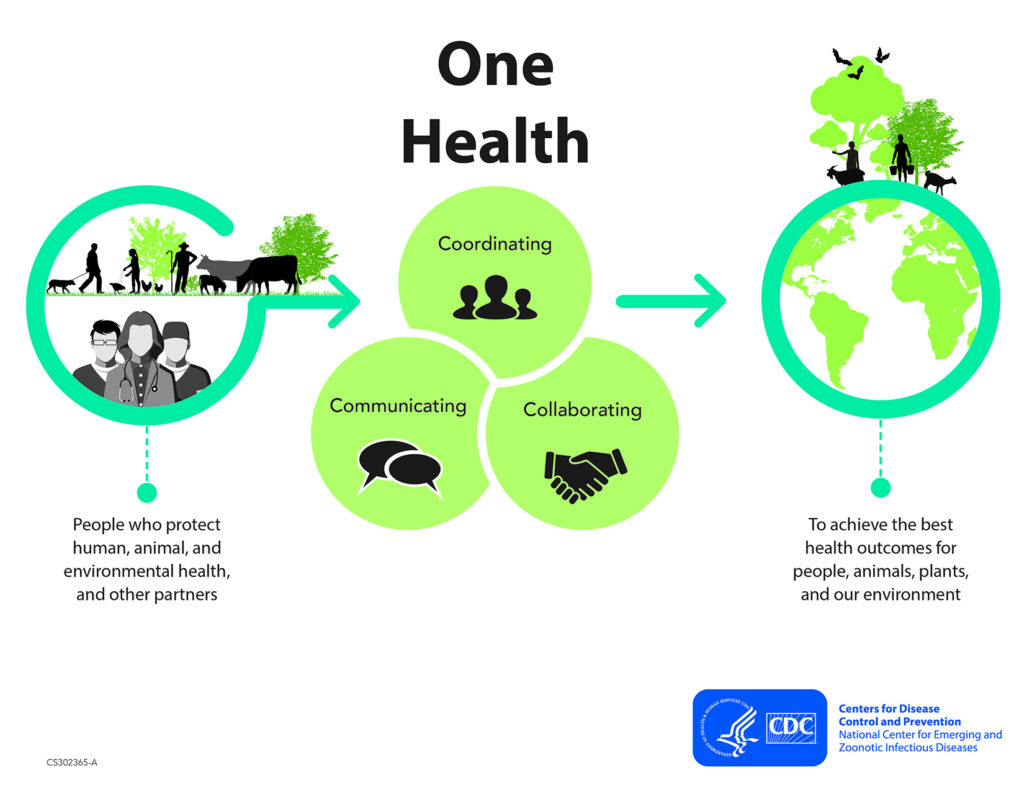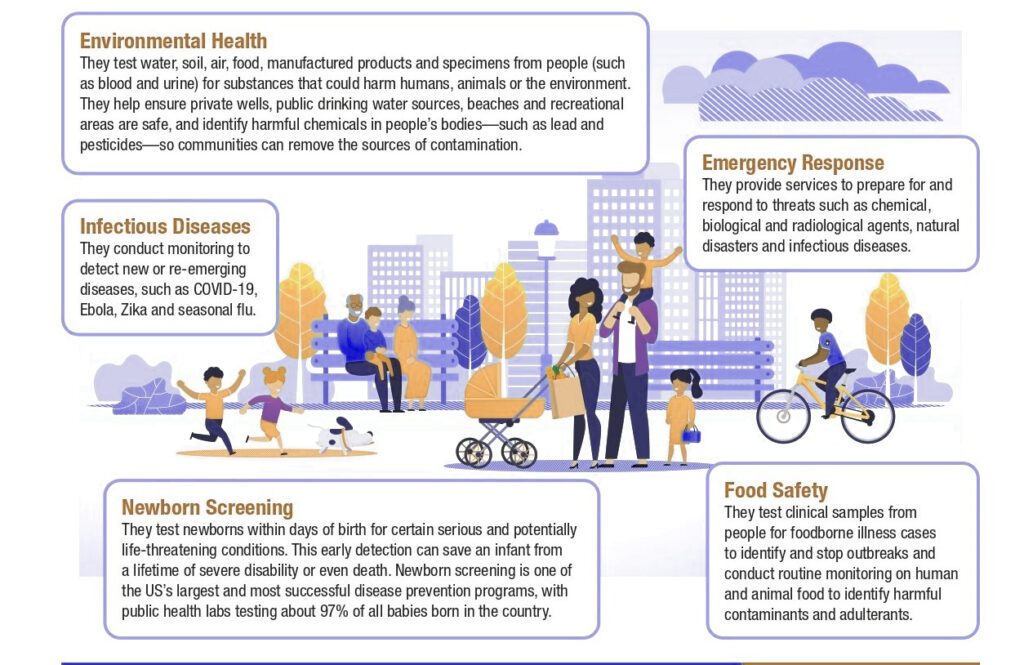PUBLIC HEALTH PROGRAMS
Aptvet collaborates with governmental health agencies and public health laboratories as a reference lab to monitor and detect health hazards ranging from rabies and dengue fever to radioactive contamination, genetic problems in neonates, and terrorist agents at the federal, state, and municipal levels.
Public Health. One Health. Global Health.
AptVet collaborates with public health laboratories as a reference laboratory on testing and monitoring potential public health concerns in order to protect our communities and the population at large. We collaborate with government agencies at all levels to detect infectious diseases, food and waterborne illnesses, environmental exposures, genetic issues in newborns, and much more.
AptVet Laboratory also works with other public health labs, such as environmental and agricultural labs, to form the backbone of a national laboratory network that can respond to new disease strains, natural disasters, chemical spills, foodborne outbreaks, and other health emergencies.
We work closely with the Center for Infectious Diseases Research, the Nigeria Centre for Disease Control, the International Foundation Against Infectious Disease in Nigeria, and other federal agencies to prevent and control health threats. These agencies include the National Agency for Food and Drug Administration and Control (NAFDAC), the World Health Organization, and other international health organizations.

AptVet supports the “One Health” approach, which highlights the interdependencies between human, animal, and environmental health. Understanding these links is important for reducing the effects of diseases and other health risks, especially in a time when the climate is changing quickly.
Humans and animals interact with one another and their environment in ways that can alter disease patterns and intensify health hazards. As humans develop additional land, for instance, they come into contact with displaced animals and creatures, thereby increasing their risk of contracting zoonotic diseases. Seventy-five percent of new infectious illnesses in humans are caused by zoonotic pathogens. Additionally, climate change creates conditions favorable to bug populations.
How Public Laboratories Approach ONE HEALTH:

Our Global Health Capabilities
AptVet’s Global Health Program works with countries all around the globe to establish robust and resilient national laboratory systems by supporting and partnering with national public health laboratory systems. AptVet helps lab professionals at all levels of a national system by giving them technical help, training, leadership and management fellowship programs, and tools.
-
Document Creation
AptVet works closely with government health agencies to bring key players together and help make strategic plans, standard operating procedures, national policy guidelines for medical laboratory services, and designs for setting up a national laboratory system.
-
Evaluation & Accreditation
AptVet supports laboratories in maintaining the most effective surveillance and assessment methods. APHL members and consultants assess laboratory capacity, workflow, and resource availability, allowing nations to address gaps. Assessments assist laboratories in determining what efforts need to be made to enhance their laboratories.
-
Informatics
AptVet assists governments in the evaluation, design, and deployment of LIS for more effective administration of laboratory procedures and reporting of laboratory data from public health and clinical laboratories. For laboratories to work well, they need systems that make it easy to use and share good information, both on paper and through computers.
-
Quality Assurance
AptVet, in conjunction with the CDC, designs and implements effective, adaptable quality improvement and quality assurance programs, including nationwide EQA programs. From validation through follow-up, ensuring laboratory quality is an ongoing and encompassing priority.
-
Training
AptVet creates custom-tailored seminars and courses that not only address current deficiencies but also cover the full spectrum of skills required for laboratory managers: financial management, quality control and quality assurance, equipment maintenance, and collaboration within the health system. As a result, supervisory and management employees have improved their skills across the whole system and can now lead well.
-
Mentorship
AptVet promotes partnerships between lab personnel and specialist lab scientists who monitor day-to-day tasks and provide professional guidance on quality control and quality assurance as needed. Mentors also help in the long run by giving checklists, keeping track of data management, doing site audits, and sharing best practices and ideas.
-
Transport
AptVet offers a specimen transport network at chosen VL labs, managing the movement of specimens to and from the laboratory. Schedules of bikers are put together so that samples can be brought in time for high-quality VL testing.
-
Twinning
AptVet fosters laboratory twinning connections, which match a laboratory from a low-resource nation with a more established institution with specific expertise. In theory, twinning improves both companies by expanding the knowledge and understanding of all parties involved.
